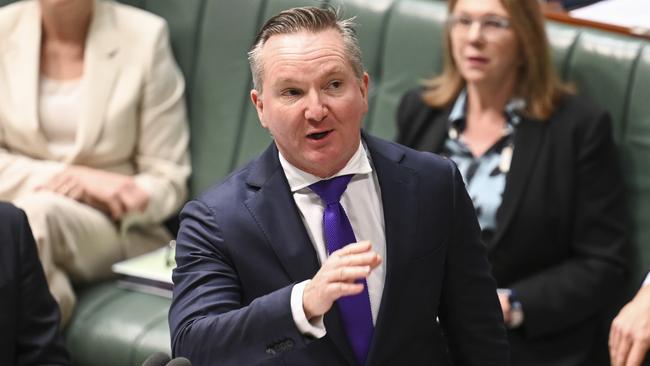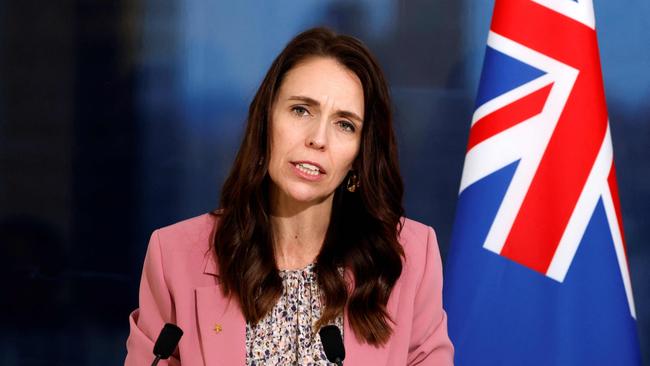Too often the energy debate comes across like a badly scripted movie
With so many of the leading actors seemingly oblivious to the inanity of the lines they spout, the energy debate is providing unintended giggles.

The premise was clever, as was the dancing, but the script was diabolical. When the Hines character says of his wife (played by Isabella Rossellini): “That woman is the best thing that ever happened to me in my life”, I wondered how such a cliche could spring from someone’s mind on to a keyboard, make it through script editing, be tested in rehearsals, come out of the actor’s mouth during the shoot and yet still escape the cutting-room floor to make it on to our screens.
Look, I am certain worse films have been made. But, perhaps because we were both in caustic moods, when I saw with a dear friend we turned our cringe into laughs that have lingered.
I mention it now because we are being treated to similar hate-watching hilarity in contemporary public affairs.
The climate and energy debate, the so-called climate wars, provide the same mirth in the here and now. With so many of the leading actors seemingly oblivious to the inanity of the lines they spout, it comes across as a badly scripted movie, providing unintended giggles. And they dance not to the rhythm of reality but to the stumbling beat of petty political imperatives.
Climate Change and Energy Minister Chris Bowen was asked on the ABC this week (where else would he grant an interview?) about the reason his government was determined to meet its 2030 emissions reduction target under the Paris Agreement.
“I mean it’s partly about Paris, of course, and it’s partly about emissions reduction,” said Bowen, “and it’s partly about seizing the opportunity for Australia as a renewable superpower.”
Yep, a “renewable superpower” – these words came not from some kid in the sandpit with a Buzz Lightyear action figure. They came from an adult elected official who is charged with delivering this “renewable energy transition”.
Even the Prime Minister uses these same juvenile and meaningless phrases. “We can be a renewable energy superpower for the world,” Anthony Albanese told Guardian Australia in a podcast this week. ‘
Talk about preaching to the converted – “To infinity and beyond!” This is gibberish. Unscientific, irrational, laughable political rhetoric.
Energy superpowers have abundant energy, they have it in dense forms (such as oil, coal, gas and uranium) and they can exploit and export it efficiently and affordably. Think Saudi Arabia, United Arab Emirates, the US and Russia. Australia could and should be an energy superpower, exploiting our bounty as one of the leading exporters of coal, gas and uranium.
But Labor, the Greens and the teals want us to turn our backs on using all three energy resources at home and are working to demonise these exports worldwide. They are deliberately saddling our industry, businesses and residents with less reliable and affordable forms of sparse, intermittent renewable energy. They are deliberately turning us from a cheap energy powerhouse to an energy basket-case. Some transition.
Renewable energy cannot be exported. The SunCable project promised to build a transmission line from Northern Territory solar farms to Singapore and it’s going about as well as the numerous wave power generators rusting out around our coastline.
So-called green hydrogen, more of a slogan and a pipedream than an actual commodity, is not commercial anywhere. Proposing it is a great way to win government subsidies – just ask Andrew Forrest – but it remains an obtuse way to produce hydrogen when reliable energy from a nuclear reactor or coal-fired plant could to it better. And that overlooks the minor issue of ensuring there are machines and vehicles running on hydrogen to provide a market.
There is so much bunkum flying around that the so-called climate wars are laughable; they are more about sanctimony than science. This is what happens when you focus on cutting emissions and signalling virtue instead of producing energy.
Back in 2018 Jacinda Ardern, the Labour prime minister of New Zealand who became the instant poster girl of global green-left politics, banned offshore gas exploration. With plentiful hydro-electricity and geothermal generation, the Kiwis rely on fossil fuels for less than a quarter of their electricity generation so Ardern probably figured the gas ban was a bit of painless grandstanding.

Not so. When demand surged, hydro was a little dry and the wind didn’t blow, the Kiwis were left without power on cold nights. The current National government is scrapping the ban and ensuring they have enough gas in future.
Ideology too often trumps engineering; sanctimony is preferred over reality. We have seen this many times in many places, until power prices and shortages deliver a reality shock.
Australia can avoid all this, we have had enough warnings at home and abroad, but Albanese and his Greens and teal accomplices are not for turning.
“My vision for Australia is one where you have solar and renewables creating green hydrogen, which is then used to power advanced manufacturing to produce green steel, green aluminium,” he told Guardian Australia.
Green all right. They get away with this mindless banter only because most of the media is culpable, feebly accepting nonsensical lines and amplifying rather than interrogating them. Albanese (and his Greens and teal playmates) has tried to link the scientifically inconsequential debate about whether Australia meets a 43 per cent emissions reduction goal by 2030 to climate outcomes.
If a politician talks absolute tosh about climate change, will anybody in the press gallery even notice? No, because most journalists also are trying to pretend Australia’s emissions profile over the next five or six years is a matter of substance.
“We are a country that is prone to extreme weather events and climate change is making those extreme weather events more intense and more frequent,” the Prime Minister fantasised at a Sydney press conference.
“The idea that we will just walk away from any action on climate change is an abrogation of the responsibility that I have and that the Australian government has, not just to this generation but to future generations as well.”
This intergenerational climate hero cannot point to scientific evidence that any weather events or natural disasters in Australia have become more intense or frequent; all he has is rhetoric.
Furthermore, no matter what is happening to the climate, all of science and rational thought will tell him the additional 17 million tonnes reduced over each of the next five years to meet the 2030 target can have no discernible impact on any climate, anywhere, good or bad, when global annual emissions are more than 35,000 million tonnes and growing at a rate of more than 400 million tonnes a year.
Call it hard luck, call it Armageddon or just call it reality; those are just the facts about our emissions and their insignificance. It is not for nothing that former chief scientist Alan Finkel had to admit the effect of taking all of Australia’s annual emissions out of the atmosphere would be “virtually none”.
Yet, inexplicably, green-left politicians are in constant denial about any or all of these facts and seek to lead the world in their climate piety, perhaps hoping for a UN honour. Ardern, remember, was lauded for trying to save the planet by tinkering with her nation’s 0.1 per cent of global emissions.
If you wrote this script, you could never finance the film. Unless maybe Baryshnikov played Albo, and Rossellini, Ardern (yes, yes, yes, they would have to bring in Rowan Atkinson for Bowen).
When you try to point out some of these salient facts in public debate the retort from the left is predictable and binary. To question their approach is to be a “climate denier” who just wants to “let it rip”.
The reality, of course is much more nuanced and sensible. If we agree the world needs to target net zero by 2050 and that as a nation we must play our part, then we need our leaders to consider the best way to achieve that while maintaining our economy, society and lifestyle.
When we are talking about the fundamentals of our economy over a decades-long timeframe we ought to get it right. There is no need to rush. It does not mean being the fastest or the most virtuous for the sake of politics or plaudits. It should not mean running a world-first experiment to transition a major industrialised nation with a reliable fossil fuel-based electricity grid to an untried renewables-plus-storage model two decades ahead of deadline.
On the contrary, because we make up just over 1 per cent of global emissions that cannot materially impact on the global climate, and we have vast amounts of land for abatement, we should take our time to map the best route. Blind Freddy could tell us now that we should have begun to implement a nuclear strategy 20 years ago, centred on the industrial sites and transmission hubs of the existing coal-fired generators.
Just because we have already wasted decades and hundreds of billions of dollars while alienating thousands of hectares for intermittent renewable infrastructure is no reason to bet the lot on this same foolish plan. We have the time to get it right.
We could build two major nuclear reactors for less than the cost of the Snowy 2.0 pumped hydro project and in a similar or shorter timeframe. We could have built four or five reactors for the money spent on renewable subsidies over the past 15 years, or 10 reactors for the cost of the tens of thousands of kilometres of transmission lines yet to come.
The lines about cost and delay do not stack up. Like White Nights, the anti-nuclear mob is stuck in a Cold War-era ideological battle.
It is time we cut the political and partisan dancing. It is time for a rational debate about energy options to set us up for the next century.








Some of you might have seen a 1980s Cold War film, White Nights, starring ballet legend Mikhail Baryshnikov and tap-dance master Gregory Hines. It was a shocker.